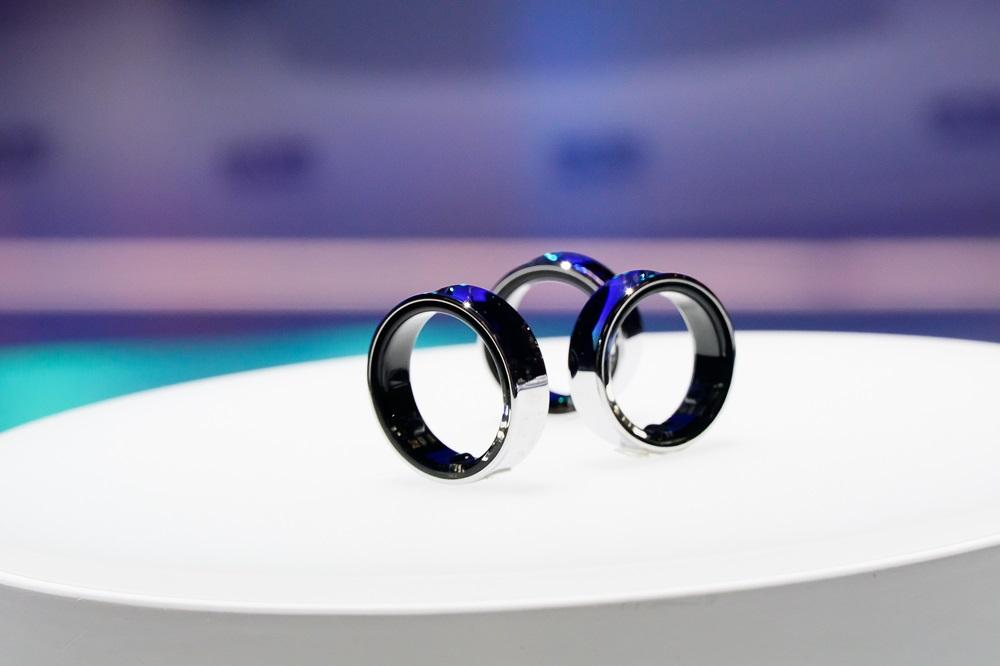Samsung introduced the Galaxy Ring, its first smart ring, at the Galaxy Unpacked event in Paris. This move marks Samsung’s entry into the smart ring market, aiming to offer health-tracking features and compete with Apple. The lightweight ring is equipped with sensors for 24-hour health monitoring, expanding Samsung’s portfolio of health-focused devices, which already includes smartphones and smartwatches.
The launch of the Galaxy Ring comes as smartphone sales begin to recover, though consumers are keeping their devices longer. By adding new electronic products like the Galaxy Ring, Samsung seeks to drive sales and maintain consumer interest.
The ring’s integration with other Samsung devices, such as smartphones and smartwatches, emphasizes the company’s strategy to create a cohesive ecosystem of interconnected products.
Samsung positions the Galaxy Ring as a complementary device to its smartwatches and smartphones, leveraging AI to provide a comprehensive health overview. This integration is designed to boost sales of other Samsung products by highlighting the benefits of a connected ecosystem.
Paolo Pescatore, founder of PP Foresight, believes the ring could be a significant driver of smartphone sales and user migration to Samsung’s platform.

The Galaxy Ring features various health-tracking capabilities, including sleep monitoring, menstrual cycle tracking, heart rate detection, and exercise recognition. The ring weighs between 2.3 and 3 grams, depending on size, and is available in three colors. Its battery life lasts up to seven days, with a portable charging case included. The ring is set to be released on July 24, starting at $399.99.
Alongside the Galaxy Ring, Samsung revealed new smartwatches — the Galaxy Watch7 and Galaxy Watch Ultra. This is the first “Ultra” model, targeting athletes and outdoor enthusiasts. These watches feature advanced sensors and sports-tracking capabilities. Samsung also launched its latest foldable devices, the Galaxy Z Fold 6 and Z Flip 6, further expanding its product lineup.
The Galaxy Ring aims to enhance Samsung’s ecosystem by providing detailed health insights when used with other Samsung devices. For example, when paired with a smartwatch, the ring extends battery life and offers more comprehensive health data. Francisco Jeronimo of IDC notes that this integration, combined with AI, creates a personalized experience that encourages consumers to choose Samsung over other brands.
Samsung’s strategy mirrors Apple’s successful approach of interconnecting its products to retain users. By focusing on an ecosystem of devices, Samsung aims to keep consumers engaged and loyal. Ben Wood of CCS Insight highlights that this approach has proven effective for Apple, and Samsung is now leveraging it to strengthen its market position.
While the Galaxy Ring is expected to be a niche product, with around 4 million units projected to ship in 2025, it represents Samsung’s effort to tap into the growing interest in health metrics tracking. Although the ring may not significantly impact revenue, it complements Samsung’s smartwatch offerings and can be comfortably worn at night.
Samsung’s global reach and marketing budget are expected to establish the smart ring market on a larger scale, opening new revenue streams and expanding the wearables portfolio.






Leave a Reply